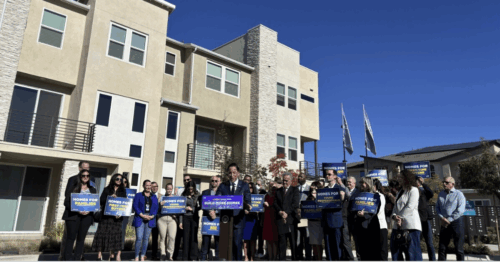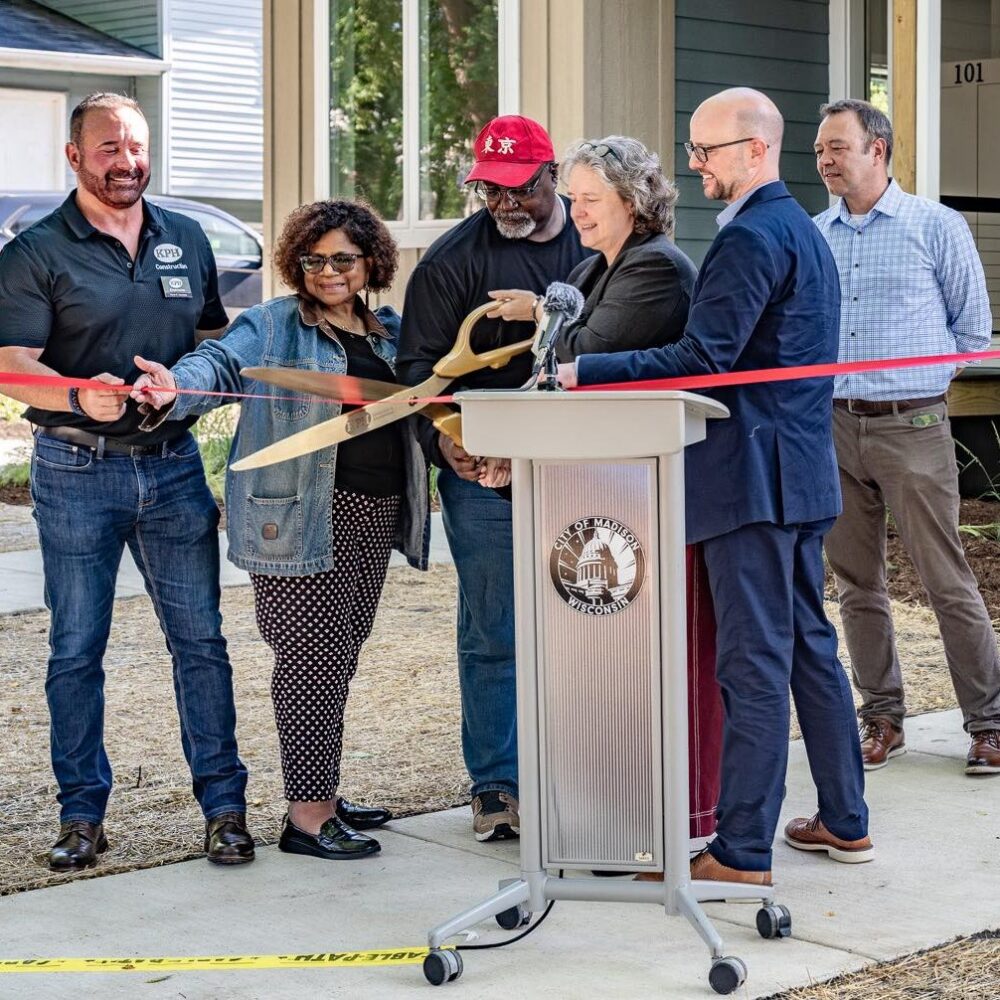
Mark Fischer, KLKN
LINCOLN, Neb. (KLKN) – Mayor Leirion Gaylor Baird and several community officials gathered on Thursday to boast the positive impact of the new Co-responder Program.
The partnership between the Lincoln Police Department and CenterPointe allows health professionals to respond jointly with LPD officers when people are experiencing a mental health crisis.
Two co-responders began service on March 3, with another expected to start in early April.
“This collaborative approach provides a more focused and effective response to the mental health needs of the community, while ensuring public safety,” Mayor Gaylor Baird said. “The City’s implementation of the Co-Responder Program is a testament to how we work with our community partners to get our community members the care they need, when they need it. With co-responders on call, we are on track to make Lincoln the safest and healthiest capital city in America.”
SEE ALSO: Lincoln Police, CenterPointe partner to better serve people during mental health crisis
Police Chief Michon Morrow said that since May 2024, LPD has responded to more than 12,000 mental health-related calls, which represents about 12% of the total calls for service during that time.
Nearly 4,000 of those calls required officers to put people into emergency protective custody.
“The growth of these partnerships allows us to broaden our focus, ensuring we are not just addressing criminal behavior but are also nurturing the well-being of our entire community,” Morrow said.
LPD Captain Ben Kopsa said both officers and co-responders are reporting positive experiences with the program.
“Our vision is for these professionals to be active in the field as much as they are needed on a call, while also doing community engagement, when possible, to get feedback that informs their work and builds relationships with both officers and the community,” Kopsa said.
Co-responders are stationed at LPD headquarters, receiving calls for service through a request by LPD officers or by monitoring emergency radio channels.
According to Amber Dirks, Co-Responder Program Manager, each co-responder completes 120 hours of law enforcement training before joining officers in the field.
The training covers areas such as radio procedures, de-escalation techniques, emergency protective custody statutes, use of force tactics and other relevant topics.
Since the program began, co-responders have responded to 23 calls for service, in which 15 people received assistance that did not require further emergency intervention.
Dirks said 69% of those also received follow-up support.
“These outcomes show the real impact of early, community-based response – lives stabilized, crises de-escalated, and support delivered where it’s needed most,” Dirks said. “The data we collect helps us understand community needs, identify gaps, and make this program even stronger. We are committed to adapting to better serve our community and improve outcomes for those in need.”
Brittanie Scarbrough, a CenterPointe Co-responder Therapist, said the goal of co-responders is to de-escalate the situation, provide compassionate support and help connect individuals to the support they need.
“We’re not just there for the moment – we’re helping to break down stigma around mental health and encourage people to seek ongoing care. Because of this approach, we’ve helped individuals remain safely in their homes, avoid hospitalization or incarceration, and re-engage them with vital services,” Scarbrough said.
The initial three years of the Co-responder Program are funded by a $550,000 Bureau of Justice Assistance grant with a match of $221,278 from the City’s budgeted general funds.
Nearly 85% of those funds pay co-responder salaries.
Funding for the Co-responder Program also includes a $200,000 federal grant from the COPS Program for Promoting Access to Crisis Teams.
For more information on CenterPointe, visit their website.
Read the original article here.
More Insights


WAVE: Mayor Greenberg closes out third year in office with double-digit drop in homicides


